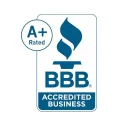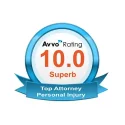Welcome to the Law Offices of Tim O’Hare! We understand navigating Texas traffic laws, especially those related to your car’s equipment and operation, can be confusing. This comprehensive guide, written by our experienced Carrollton car accident attorneys, aims to be your one-stop resource. We’ll explore common traffic violations in the greater Dallas area related to your vehicle and the potential consequences.
Why Traffic Laws Matter in Texas
Traffic laws go beyond avoiding tickets (though those can be expensive!). They’re about ensuring the safety of yourself, your passengers, and everyone sharing the road. Understanding these rules helps you avoid the significant stress and financial burden associated with car accidents.
Unfortunately, accidents do happen. If you’re ever involved in one, having a knowledgeable and experienced Texas car accident injury attorney on your side can make a world of difference. Here at the Law Offices of Tim O’Hare, we are dedicated to helping Dallas car accident victims navigate the legal complexities and fight for the compensation they deserve.
We suggest following this simple Driver’s Guide below to ensure a safe driving experience.
Obey Texas Vehicle Inspection Laws
Texas law requires you to keep your car in good working order by having an annual safety inspection, at least now through 2025. Although official inspections won’t be required after 2025, it’s a hazardous safety issue if you choose to neglect the maintenance of your vehicle. Faulty equipment poses a safety hazard and can lead to traffic citations and even crashes. Here are some key equipment regulations to be aware of:
Lighting: Headlights, taillights, brake lights, turn signals, and hazard lights must function properly. Ensure they’re bright enough to illuminate the road during nighttime or low-visibility conditions.
Mirrors: Your car must have a rearview mirror and side mirrors to provide adequate visibility. Properly adjust your mirrors to eliminate blind spots.
Brakes: Your brakes must be in good working condition and able to bring your car to a safe stop. If you experience any braking issues, get your car checked by a qualified mechanic immediately.
Tires: Tires must have sufficient tread depth (at least 2/32 of an inch) and be properly inflated according to the manufacturer’s recommendations. Worn-out or underinflated tires can significantly impact your car’s handling and stopping distance.
Windshield: Cracks or chips in your windshield that obstruct your view can be cause for a ticket, especially if they impair your ability to see clearly.
If you choose to neglect these items, you are committing an offense according to Texas Transportation Code:
Sec. 547.004. GENERAL OFFENSES. (a) A person commits an offense that is a misdemeanor if the person operates or moves or, as an owner, knowingly permits another to operate or move, a vehicle that:
(1) is unsafe so as to endanger a person;
(2) is not equipped in a manner that complies with the vehicle equipment standards and requirements established by this chapter;
Our advice: keep up with your scheduled vehicle maintenance now to avoid future legal and safety headaches. It might take a few hours out of your day but it’s worth the hassle.
Avoid These Common Dallas Traffic Violations
Knowing the rules of the road is crucial for avoiding accidents and potential legal trouble. Here’s a look at some common traffic violations in Dallas that can be directly related to car accidents in Texas:
Moving Violations: These include:
- Speeding: Speeding is a major danger, contributing to a staggering 1, 469 lives lost on Texas roads in speed-related crashes in 2022 according to the Texas Department of Transportation. Driving too fast for conditions is especially risky and contributes to Texas’ ranking as one of the top states for fatal car accidents. Always obey posted speed limits. Remember, speed limits are set for ideal conditions, and you should adjust your speed based on weather or traffic congestion.
- Improper Lane Changes: Use turn signals well in advance before changing lanes and ensure it’s safe to do so.
- Running Red Lights: A complete stop at red lights is mandatory with no exceptions. Running a red light is illegal in Texas but it can also cause a severe accident as well.
- Failing to Yield the Right of Way: These are sometimes the most misunderstood but highly preventable accidents — the failure to yield the right-of-way accident. When a driver seizes the right of way when it isn’t rightfully theirs, it constitutes a failure to yield. In a nutshell, yield to pedestrians in crosswalks, oncoming traffic when making a left turn, and merging onto freeways.
- Rear-End Collisions. Following too close or tailgating violates Texas law! Use the 3-second rule: pick a fixed object on the road as the car before you pass it. Count “one-thousand-one, one-thousand-two, one-thousand-three.” If you pass it before finishing, you’re too close! Increase distance in bad weather, heavy traffic, or following large vehicles.
Keep Focused: The Dangers of Distracted Driving in Texas
While negligent drivers choose to take their focus off the road for many reasons, texting is the most common culprit. In Texas, using a handheld phone while driving is illegal. This includes texting, talking without a hands-free device, or any activity that takes your attention away from the road. Texting and driving can distract you long enough to travel the entire length of a football field. In fact, you are 20 times more likely to crash while texting and driving than you are when not using a cell phone.
Staying Informed About Changing Traffic Laws in Dallas
Traffic laws can vary by city or county within Texas. It’s important to stay informed about the specific regulations in your area, especially any local ordinances within Dallas.
Here are some resources:

The Law Offices of Tim O’Hare: Your Trusted Partner on the Road
Understanding traffic laws and maintaining a safe vehicle are critical steps towards accident prevention. However, accidents can happen even to the most cautious drivers. If you’re ever involved in an accident in Dallas, don’t hesitate to seek legal counsel. At the Law Offices of Tim O’Hare, we understand the physical, emotional, and financial challenges an accident can cause. Our experienced Dallas car accident attorneys can help you navigate the legal process and fight for the compensation you deserve.









